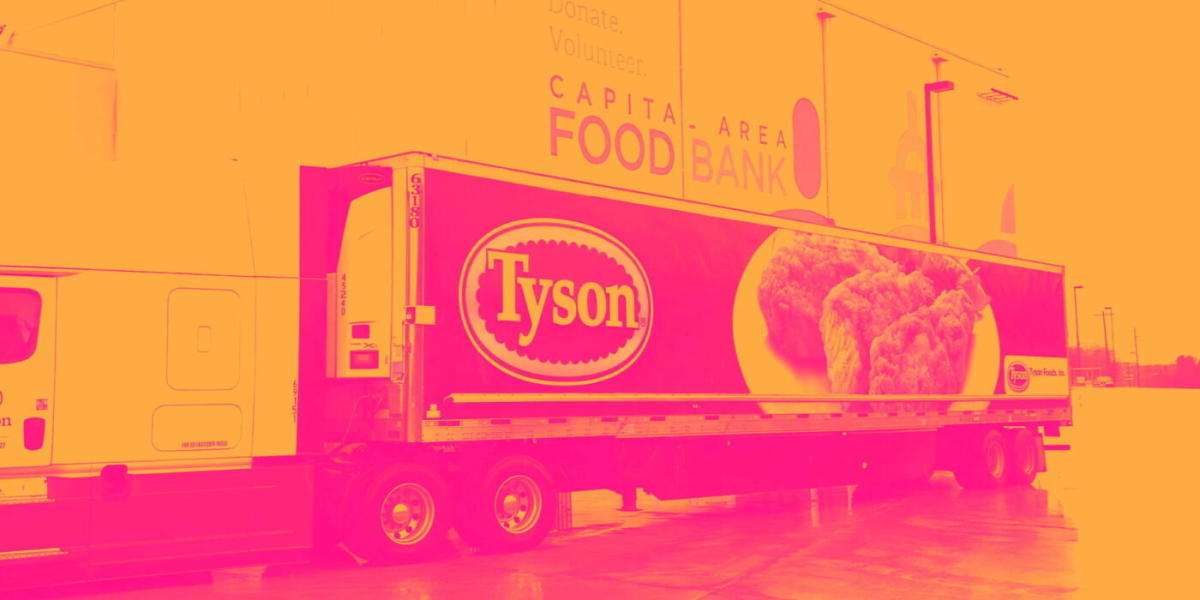Tyson Foods’ first quarter saw flat sales compared to last year, missing Wall Street’s revenue expectations, while non-GAAP profit outpaced analyst forecasts. Despite higher profit, the market reacted negatively to the results. Management attributed the challenging quarter to continued softness in beef margins, ongoing inflationary pressures, and the impact of a legal contingency accrual in the pork segment. CEO Donnie King described the operating environment as complex and noted that while chicken and prepared foods performed well, “beef is experiencing the most challenging market conditions we’ve ever seen.” Management acknowledged the ongoing need for operational improvements and cost management across segments.
Is now the time to buy TSN? Find out in our full research report (it’s free).
-
Revenue: $13.07 billion vs analyst estimates of $13.16 billion (flat year on year, 0.7% miss)
-
Adjusted EPS: $0.92 vs analyst estimates of $0.82 (12.2% beat)
-
Adjusted EBITDA: $867 million vs analyst estimates of $813.4 million (6.6% margin, 6.6% beat)
-
Operating Margin: 0.8%, down from 2.4% in the same quarter last year
-
Market Capitalization: $19.46 billion
While we enjoy listening to the management’s commentary, our favorite part of earnings calls are the analyst questions. Those are unscripted and can often highlight topics that management teams would rather avoid or topics where the answer is complicated. Here is what has caught our attention.
-
Alexia Howard (Bernstein) questioned the lack of guidance raise despite profit outperformance; CFO Curt Calaway explained guidance already factors in risks from tariffs and consumer trends, and management remains cautious given beef market challenges.
-
Peter Galbo (Bank of America) asked about expected savings from cold storage network changes; COO Brady Stewart detailed that automated facilities will reduce transportation costs and streamline inventory, with most savings benefiting chicken and prepared foods.
-
Kenneth Goldman (J.P. Morgan) pressed for specifics on when Prepared Foods margins will sustainably exceed 10%; CEO Donnie King responded that new management systems and innovation pipelines should drive improvements, but timing remains uncertain.
-
Andrew Strelzik (BMO) sought clarification on chicken segment investments and uncertainties; Group President Devin Cole specified $100 million in incremental spending, mainly for brand and product innovation, and noted mixed consumer signals and trade dynamics as ongoing risks.
-
Heather Jones (Heather Jones Research) asked about the impact of tariffs and rationale for implied chicken guidance; Calaway reiterated that guidance includes tariff assumptions and spending, while King cited value-added product focus and market share protection as key strategies.















